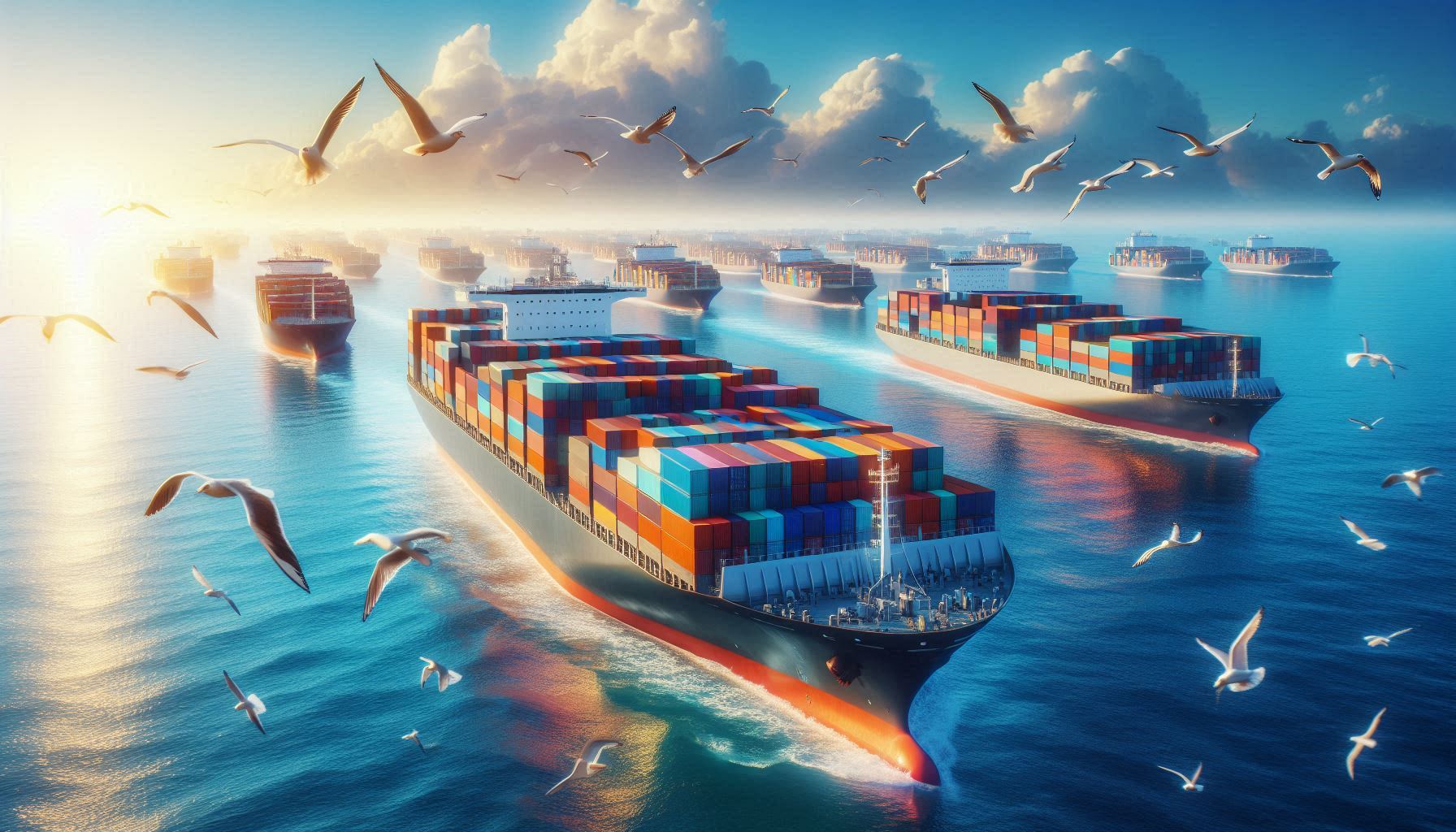Ship chartering is one of the most important tools in maritime transport, especially in international trade. In Iran and the countries surrounding the Persian Gulf, this industry plays a crucial role in the development of trade and maritime transport.
Given the strategic location of this region, access to international waters and vital transport routes, ship chartering has become significantly important. Maritime shipping companies such as Versk have also played an essential role in facilitating and improving the chartering process by providing comprehensive services. This article examines the ship chartering process in Iran and the Middle East, the opportunities and challenges faced by Iranian companies in the regional market, and the role of this industry in the development of international trade.
The Ship Chartering Process
Ship chartering refers to the short-term or long-term rental of a ship from its owner for the purpose of transporting goods or passengers. This process is typically formalized through a contract that outlines the terms of the lease, the responsibilities of the parties involved, and the duration of use. In Iran, ship chartering is mainly used for transporting bulk commodities such as oil, gas, minerals, and essential goods. Companies like Versk, offering comprehensive services in this field, including legal consultation, logistics management, and the provision of skilled human resources, have established themselves in the chartering market.
Ship chartering is categorized into three main types:
Voyage Charter: In this type of charter, the ship is rented for a specific voyage or a set of voyages. The shipowner is responsible for providing fuel, crew, and all operational costs.
Time Charter: In this type, the ship is rented for a specific period, and the charterer can use the ship for as many voyages as needed within that timeframe. Operational costs like fuel and crew are typically borne by the charterer.
Bareboat Charter: Under a bareboat charter, the ship is rented without crew and additional equipment. The charterer is fully responsible for managing and operating the ship. This type of charter is suitable for companies that want complete control over the ship’s operations.
Each of these models has its own advantages and disadvantages, depending on the type of cargo and the needs of the chartering company, and they are implemented within specific legal and regulatory frameworks in Iran and the Middle East. Versk, with expertise in all three types of chartering, can offer the best solutions based on customer needs.
Opportunities in the Regional Market
Iran and the Persian Gulf countries, due to their geographical location and vast energy resources, present a highly attractive market for ship chartering. Strategic Iranian ports such as Bandar Abbas, Chabahar, and Imam Khomeini serve as gateways for the entry and exit of goods to global markets, providing ample opportunities for both Iranian and foreign companies in this field. Versk takes full advantage of these advanced ports to offer efficient and comprehensive maritime transport services.
Access to Global Markets: As one of the world’s largest producers of oil and gas, Iran requires large vessels to transport these materials to global markets. Ship chartering companies can leverage this opportunity to assist in the export of these resources to Asian, European, and even American countries.
Investment in Infrastructure: In recent years, Iran has made significant efforts to invest in the development of ports and maritime infrastructure, positioning itself as a key maritime transport hub in the region. This has led to considerable growth in ship chartering, especially in the oil and gas sector.
Trade Growth in the Persian Gulf: The Gulf countries, such as the UAE and Qatar, have become some of the largest ship chartering markets in the world due to rapid economic growth and the development of the oil and gas industries. Iran can play an important role in this market by capitalizing on these opportunities.

Legal and Logistical Challenges
While there are numerous opportunities for ship chartering in Iran and the Middle East, the industry faces several legal and logistical challenges.
Economic Sanctions: One of the biggest challenges Iranian companies face in ship chartering is international economic sanctions. These sanctions discourage many foreign companies from collaborating with Iranian firms and make the procurement of ships and equipment more difficult.
Logistical Issues: Despite efforts by Iran to improve its port infrastructure and transport systems, logistical challenges persist. For instance, delays in cargo unloading and loading due to a lack of modern equipment or skilled manpower can increase operational costs for ship chartering.
Complex Customs Regulations: In many Middle Eastern countries, including Iran, complex customs regulations and lengthy administrative processes can hinder the efficient operation of ship chartering. This could lead to delays in shipping and increased operational costs.
Regional Competition: The rapid development of ports and maritime infrastructure in the Gulf countries, particularly the UAE, has led to intense competition in the ship chartering market. Iran needs to improve its infrastructure and reduce legal and administrative barriers to enhance its competitiveness in this market.

The Role of Ship Chartering in the Development of International Trade
Ship chartering plays a crucial role in the development of international trade. In Iran and the Middle East, this industry is especially vital for transporting oil, gas, and minerals, which are cornerstones of the region’s economy. Iran, with its access to international waters and strategic location on key global trade routes, can use these advantages to boost its trade.
Fast and Reliable Transport: Ship chartering offers a quick and reliable way to transport goods via maritime routes. This allows Iranian companies to access international markets and enhances their competitiveness.
Lower Transport Costs: Maritime transport is more cost-effective than other methods like air or land transport. Ship chartering enables Iranian companies to export goods at lower costs, increasing their profitability.
Expanding Trade Networks: Ship chartering directly supports the development of international trade networks. By collaborating with foreign companies in ship chartering, Iranian companies can establish new trade relationships and create new opportunities for business.
Conclusion
Ship chartering in Iran and the Middle East is a key tool for maritime transport and international trade, playing an important role in the region’s economic development. Despite the legal challenges, sanctions, and logistical obstacles, there are many opportunities for Iranian companies in both the regional and global markets. Investing in infrastructure, improving legal processes, and collaborating with foreign companies could further develop this industry and position Iran as a leading player in the ship chartering market.
Versk, a leading maritime transport and shipping services company, is well-known for its expertise in ship chartering. With years of experience, Versk provides a comprehensive suite of services including legal consultation, logistics management, skilled manpower, and the latest technologies, ensuring smooth, safe, and efficient shipping operations.
Versk’s specialist team, with a deep understanding of client needs and challenges, offers innovative solutions tailored to each project’s unique requirements. Choosing Versk means ensuring high-quality service, full support throughout the chartering process, and achieving the best results for your business. With Versk, you can confidently grow your business in international markets and enjoy significant competitive advantages. Partnering with Versk is a sure step towards success in the world of maritime trade.

